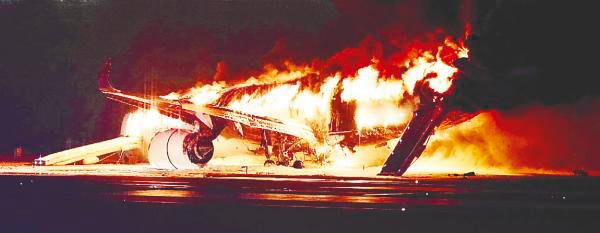THE world held its breath on Jan 2 as news of Japan Airlines Flight 516 emerged.
The Airbus A350 wasn’t in mid-air trouble. Instead, upon landing at Haneda Airport in Tokyo, it collided with a Japan Coast Guard aircraft, sparking a fire that engulfed the plane during landing.
While the incident was undoubtedly terrifying, the outcome was astonishing: within minutes, all 379 passengers and crew were safely evacuated, thanks to swift action and calm leadership.
This miraculous escape offers a crucial lesson: the role of flight attendants extends far beyond coffee and tea. In emergencies, they become our guides, our anchors in the storm.
Their training, quick decisions, and efficient execution of safety procedures were instrumental in this successful evacuation.
However, Flight 516 also begs a crucial question: are we, in our everyday lives, equipped to handle similar crises?
Are our workplaces, schools, places of worship and even our homes truly prepared for fire or other emergencies?
Do we regularly practice evacuation drills, or do we take safety for granted, assuming routine fire alarms are mere inconveniences, unaware of the true potential for chaos? The reality is sobering.
Statistics reveal countless lives lost each year due to inadequate fire safety education and preparedness.
Panic-blocked exits and confusion can rapidly transform escape routes into death traps, turning precious seconds into lost lives.
Therefore, it’s imperative that we, both individuals and organisations, redefine our approach to emergency preparedness.
Fire drills shouldn’t be mere formalities, but opportunities to learn and refine life-saving skills.
Every home should have a well-practised evacuation plan with designated escape routes and meeting points.
Workplaces must prioritise regular safety training, simulating emergencies and ensuring clear communication channels.
Remember, safety training isn’t a luxury, it’s a necessity. It’s not just about checking a box. It’s about investing in our most precious asset – life.
This is not about fear but about empowerment. The knowledge and skills gained through proper training can turn us, the passengers in our life journeys, from potential victims to proactive survivors.
Let Japan Airlines Flight 516 serve as a beacon of hope, not a chilling reminder of near tragedy. Let’s honour the heroism of the crew by taking responsibility for our safety.
Let’s commit to learning, practising and prioritising emergency preparedness because in the face of danger, it’s not just coffee and tea that saves lives, but the knowledge and training that turns ordinary people into extraordinary heroes.









